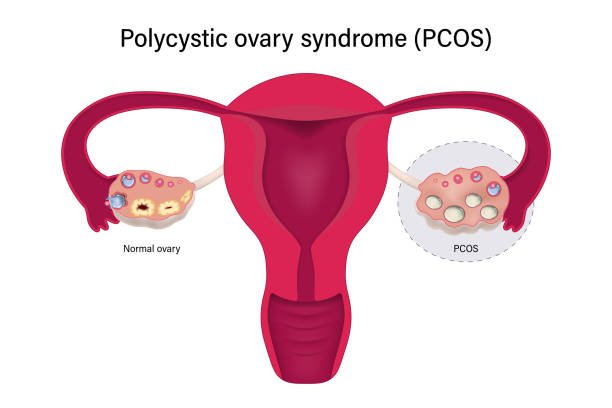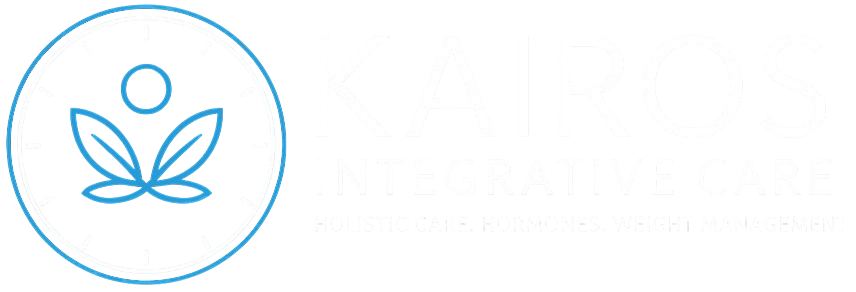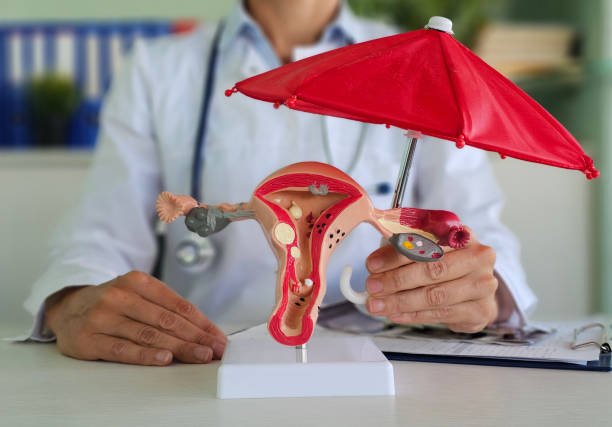Polycystic Ovary Syndrome (PCOS) is widely known for irregular periods, acne, or unwanted hair growth. But there’s another side that doesn’t get enough attention: how your metabolism and hormones interact.
Many people with PCOS develop insulin resistance, meaning the body doesn’t use insulin well. This can happen long before blood sugar problems show up on lab tests.
Insulin resistance affects your cycles, weight, skin, fertility, and long-term health. Understanding this connection helps you choose care that’s more focused and effective.
What is PCOS?
Polycystic Ovary Syndrome is a common hormone pattern that can affect the way you ovulate, how much androgen (male‑pattern) hormone your body makes, and how your body stores energy.
Not everyone’s PCOS looks the same. Some people have very irregular cycles; others struggle with metabolic changes, weight gain, or stubborn symptoms. That’s why looking deeper matters
What Is Insulin Resistance and Why Does It Matter in PCOS?
Insulin is a hormone that helps move sugar from your blood into your cells so you can use it for energy. When your cells respond well, blood sugar rises after meals and then settles back down
With insulin resistance, those cells stop listening as well. Your body makes extra insulin to keep up. Over time, higher insulin levels can push the ovaries to make more androgens, lower sex hormones, and disrupt normal ovulation.

It can also make it easier to store fat around the middle, which can further reduce insulin sensitivity. This loop is one reason PCOS and metabolism are so closely linked.
How Insulin & PCOS Interact
Most women with PCOS have some degree of insulin resistance, even those who aren’t overweight. Extra insulin acts like a signal to your ovaries to make more testosterone, which throws off your entire hormone rhythm.
What does that mean?
- Stubborn Acne that won’t go away
- Thicker or darker hair on the chin, chest, or stomach
- Thinning hair on the scalp
- Ovulation slowing down or stopping, causing irregular or missed periods
Weight gain isn’t always part of PCOS, but extra weight around the belly can make the insulin–hormone cycle worse.
Are you noticing these changes, like irregular cycles, skin issues, and slow weight gain? It’s time to get checked.
Early Signs to Notice
Not every sign means you have PCOS, but patterns matter. Common signs include:
- Irregular, skipped, or very long periods
- Acne that lasts past your teen years or flares with your cycle
- Unwanted hair on the face, chest, back, or lower belly, or thinning hair on the scalp
- Weight gain around the waist, or weight that won’t budge despite effort
- Dark, velvety skin patches on the neck, underarms, or groin (a sign of extra insulin)
- Low energy, carb cravings, or feeling better after eating
If you identify with more than one of these, it’s worth discussing with a provider who understands PCOS.
What Happens If It’s Ignored?
Leaving insulin resistance unchecked doesn’t just keep PCOS symptoms going. It can increase your risk for:
- Type 2 diabetes or prediabetes
- Fatty liver disease
- Heart disease and high cholesterol
- Chronic inflammation
- Mood changes, anxiety, and depression
This is why we focus on early detection and proactive care at Kairos.
How We Address PCOS and Insulin Resistance at Kairos
When you come to us, we start by asking the right questions and running the right tests. Basic labs often miss the big picture, so we dig deeper with:
Whole Review
We go through your cycle history, symptoms, weight trends, family risk, sleep, stress, and current meds so we can see what’s really happening.
Advanced Testing
When needed, we order advanced labs such as glucose and A1C, fasting insulin with context, lipid profile, inflammatory markers, liver function, thyroid panel, and reproductive hormones.
Food That Works in Real Life
Instead of extreme restriction, we help you build meals with protein, fiber, and healthy fats to reduce post‑meal glucose swings and lower insulin demand.
Targeted Treatment Options
We discuss medication or other supports based on your goals, labs, and tolerance, not a one‑size plan.
Conclusion
PCOS is more than a cycle issue. Hormones, metabolism, and insulin resistance often travel together, and when you address them together, symptoms make more sense and care works better.
At Kairos Integrative Care, Lola, one of our Board‑Certified Nurse Practitioners, helps find the root cause of your symptoms and creates plans that work for real life.
We serve patients in Houston, Sugar Land & surrounding areas (77046 & 77478) and accept most major insurance plans, including Aetna, Cigna, BCBS, UnitedHealthcare, and Tricare.
Book your appointment today!




